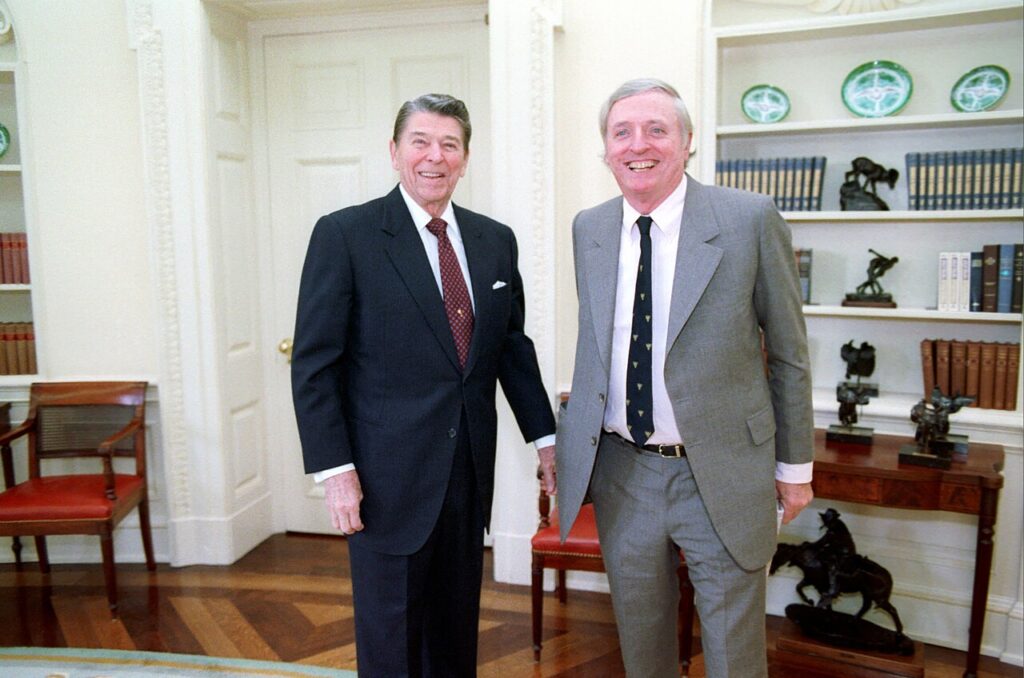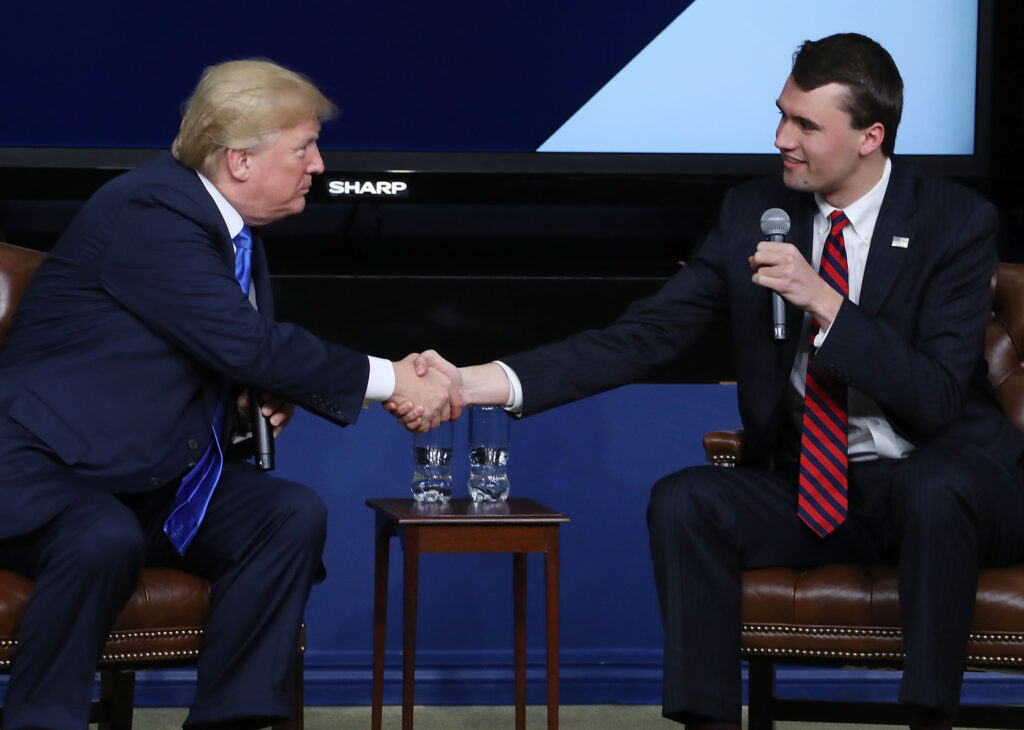Campus Activism of Charlie Kirk, a Teacher Unconfined to a Classroom, Echoes Early Career of William F. Buckley
Kirk’s assassination seems to stem from the young conservative’s advocacy of a powerful and ascendant politics.

NEW HAVEN, Connecticut — On a tranquil, sun-dappled afternoon here, the day before the killing of Charlie Kirk on a university campus more than 2,000 miles west, Yale University hosted a ceremony at which the United States Postal Service unveiled a commemorative stamp honoring the 100th anniversary of the birth of a Yale man in whose large footsteps Kirk had walked. William F. Buckley Jr., who died in 2008 at age 82, would have recognized the 31-year-old Kirk as a kindred spirit.
The poet Robert Frost wrote of his “lover’s quarrel with the world.” Buckley burst upon the national scene in 1951, at age 25, by announcing such a quarrel with his alma mater. It was heatedly explained in his first book, “God and Man at Yale.” Looking back, this volume was an early spark that lit the fuse that led to the explosion that has blown universities into the maelstrom of today’s contentiousness.
Kirk was called “divisive.” So was Socrates, who also paid with his life for the offense of being too argumentative, corrupting young Athenians by encouraging independent thinking.
Seven decades ago, Buckley, the foremost maker of the postwar conservative movement, was not often somberly denounced as divisive. His immunity was primarily because conservatism then was often regarded condescendingly as a harmless eccentricity — naughty but unserious.

By founding National Review magazine in 1955, and by his tireless traveling to small and soon not-so-small gatherings on campuses and in communities, Buckley made history: Without National Review, Barry Goldwater would not have been the Republicans’ 1964 presidential nominee. Without Goldwater, Ronald Reagan’s nomination would have been less likely.
Kirk was killed at the beginning of what was to have been a Buckley-like tour of political evangelism among the unconverted: college students. He also was probably killed because, unlike Buckley when he was 31 in 1956, Kirk was advocating a powerful and ascendant politics.
When Goldwater, an Arizona businessman, decided at age 40 in 1949 to run for the Phoenix city council, he said of politics, “It ain’t for life, and it may be fun.” In 1949, Yale was incubating Buckley as an undergraduate who, like Kirk, had a talent for making politics fun. It ought to be such. It flows from what makes us human.
Today, on both sides of the barricades, politics is practiced with a snarl. It makes people cranky, permeates everything, and in two months will spoil innumerable Thanksgiving dinners. Why then must we have politics?
Because we are what Aristotle said make humans distinctive creatures: Like Buckley and Kirk, we all are language users.
Trout get along swimmingly without politics. Ants and beavers collaborate building anthills and dams, and bees in apiaries have hierarchies (queens and drones), but we do not speak of the “politics” of ants, beavers, and bees.
Only humans have politics, for two reasons: We are opinionated, and we are egotistical. We think our opinions are preferable to others’ opinions. Hence the primary purpose and challenge of politics is to keep the peace among such creatures living together.
Many visionary nuisances think that keeping the peace is a contemptibly modest, even banal purpose for politics. They believe that social peace — living together congenially — is not merely overrated, it is evidence of bad character: too little passion for perfecting the world.
Sacrificing social peace is, they think, an inevitable price worth paying for a politics with properly elevated ambitions, including the suppression of those whose opinions and egotism are impediments to politically driven progress.

Addressing what he called, with notable understatement, “my dissatisfied fellow-countrymen,” Lincoln said in his first inaugural: “We are not enemies, but friends. We must not be enemies.” When he spoke, seven states had voted to secede. The nation was fractured by disagreement about the right of some human beings to own other human beings.
Today, American politics is embittered by many disagreements, but not even all of them cumulatively begin to justify the insanely disproportionate furies that so many people on both sides of the metaphoric barricades relish feeling. Perhaps they feel important, even to themselves, only when cloaked in the derivative importance that comes from immersion in apocalyptic politics. Politics too grand to settle for merely keeping the peace that gives congeniality a chance.
Kirk, like Buckley, was a teacher unconfined to a classroom. Anyone is such who argues for a living — who by welcoming interlocutors pays them the compliment of acknowledging the kinship of all serious users of language. It is horrific that nowadays this can be fatal.
The Washington Post

